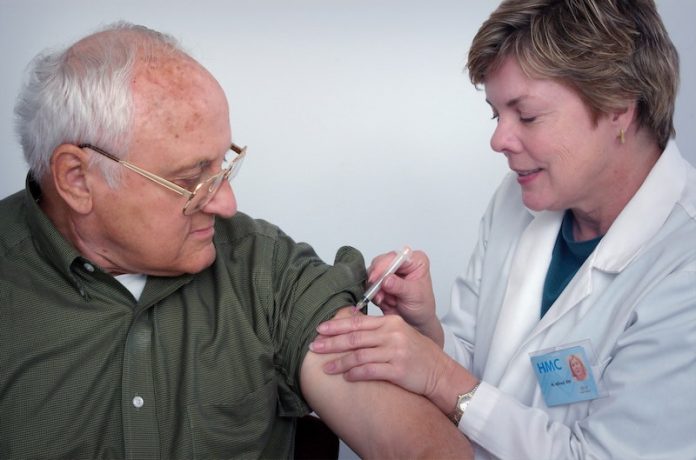
In a new national survey of attitudes about COVID-19, researchers found two-thirds (66%) of Americans say they are either “somewhat” or “extremely” likely to vaccinate themselves and their children against the novel coronavirus when such a vaccine becomes available.
The research was conducted by a team at Northwestern, Harvard, Northeastern and Rutgers.
Enthusiasm for a potential COVID-19 vaccine varied greatly across the states.
Rates of those describing themselves as “somewhat” or “extremely” likely to vaccinate fell below 60% in 11 states mostly in the South and Mountain West regions, while they exceeded 70% in 11 states across varied regions of the country.
Likewise, partisanship plays a role in enthusiasm for a vaccine: 62% of Republicans say they would be likely to seek vaccination, compared with 75% of Democrats.
The team also found the racial disparity with African-Americans reporting substantially lower likelihoods of being vaccinated.
Given the disproportional effect the virus has had on African-Americans, this is an important gap to consider moving forward.
When it comes to vaccinations, the disparity is due to attitudes, not outcomes, according to the report.
While 67% of Whites, 71% of Hispanics and 77% of Asian American respondents say they were likely to vaccinate, just 52% of African-American respondents said the same.
Respondents with lower levels of education, and lower incomes, also said they were less likely to seek a vaccine.
In addition, a recently released report by the COVID-19 Consortium found that Americans are waiting four days on average to find out the results of COVID-19 nasal swab tests, according to survey results collected between July 10 and 26.
This is double the ideal amount of time of one to two days for effective contact tracing of COVID-19 cases.
Other key findings of the latest two waves of the survey include:
For those likely to vaccinate, 62% identify the need to protect themselves and their families as a motivation, 45% cite protecting people in their community and 59% identify recommendations of medical professionals.
Both young adults (18-24) and older adults (65+) more often say they would be likely to be vaccinated, at 71% and 73% respectively, than those ages 25-44 and 45-64 (63% and 64%, respectively).
Most people, or 63%, are not getting results with the one to two days that would be optimal to do contact tracing.
A substantial minority of individuals, or 21%, are receiving test results too late to be an assistance in preventing the spread of COVID-19.
The long wait times are national in scope, with most states reporting an average wait time of three days or more.
The states with the longest wait times, more than three days on average, were Arizona, Arkansas, California, Delaware, Florida, Montana, Nevada, Oklahoma, South Carolina, Tennessee and Texas, in addition to the District of Columbia.
More than 19,000 Americans participated in each wave of the nationally-representative survey that is supported by the National Science Foundation.
One researcher of the study is James Druckman, the Payson S. Wild Professor of political science.
Copyright © 2020 Knowridge Science Report. All rights reserved.



